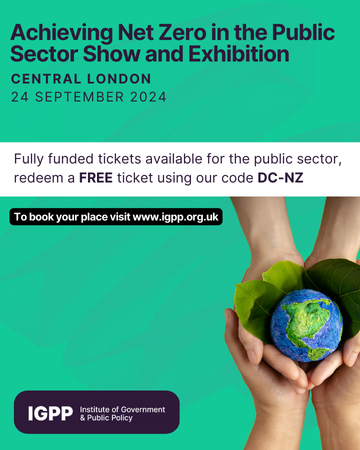The MENA Oceans Summit 2024 is set to launch on Monday bringing a larger and more diverse group of regional stakeholders to discuss the challenges the Ocean face as the temperature rises.
In this interview we talk to Tatiana Antonelli Abella, Founder of Goumbook and Chair of MENA Oceans Summit 2024 to understand how this year differs than every year.]

How is this year different than last?
The MENA Oceans Summit 2024 under the patronage of the Ministry of Climate Change and Environment is bringing together even more regional cross sectoral stakeholders to discuss, forge relationships and drive actions for our oceans.
This year we have HE Ms. Razan Al Mubarak, UN Climate Change High Level Champion, COP28 and IUCN President, giving the keynote speech followed by the UAE Ministry of Climate Change and Environment.
As an official Road to United Nations Oceans Conference 2025 event, taking place in Nice, France, we will hear from HE Nicolas Niemtchinow, Ambassador of France to the UAE, the vision and ambitions for the conference.
The summit has the addition of 3 sectorial deep dives: round table discussions tackling shipping and maritime convened by DP World, MENA conservation convened by Strategy& and engaging the youth with WEF Global Shapers Community.
‘Living colours for Pure Ocean’, an exhibition by Christophe Chellapermal, will also be on display during the MENA Oceans Summit 2024. The exhibition showcases the mesmerizing beauty of the ocean with the ecological challenges that humanity has imposed on its depth.
Where do we stand on following through last year’s initiatives?
Since MENA Oceans Summit 2023, Goumbook has developed the MENA Oceans Initiative to bring regional ocean priorities to the forefront by forging strategic partnerships between diverse stakeholder groups.
Our mission is to be a driving force for healthy ocean ecosystems and sustainable blue economies to protect and preserve our plant for future generations.
The MENA Oceans Initiative’s strategic partners are Race to Resilience, Race to Zero, the United Nations UAE office and United Nations Oceans Conference 2025.
The Initiative’s four key pillars include: Summit, Network, Science, Education
On the first day of COP28, at the Oceans Pavilion, Goumbook launched the MENA Oceans Network to unify diverse ocean-linked stakeholders across the region and accelerate the pace of ocean action under a collaborative framework. Breaking silos, this initiative brings together policy makers, academia and researchers, the private sector and innovators, along with the youth and community to drive impact.
How is the summit tackling blue economy, saving the ocean and decarbonising at the same time?
The MENA Oceans Summit 2024 engages under 4 key streams; Blue Economy, Blue Governance, Blue Science and Blue Collective. The objective is to close the loop between science, policy, industry and awareness; establishing clear inter linkages between decarbonisation and ocean health – two integral parts which have traditionally been addressed in silos.
The panel discussions and fireside chats at the summit throw light on policies and scientific advances, and foster discussions on how sustainable blue economies can drive innovation, scale technology and solutions to contribute to regeneration of ocean ecosystems.
The summit has discussions on desalination and shipping, which are investing heavily in accelerating the way they are approaching oceans sustainability and blue economy.
Additionally, the summit includes deep dives, to delve deeper into the specific key sectors including shipping and maritime where it will be discussed how do you directly establish a metric in shipping decarbonisation to ocean health and blue tech for conservation and restoration efforts.
There is a lot of dialogues and research that is happening currently, and the summit is capturing some of these latest discussions and understanding what are the best practices for our oceans.
Through dialogues and insights, we aim to identify sustainable pathways for key industries, while prioritising ocean health and marine resource management. This approach ensures that decarbonisation efforts and ocean conservation are aligned and mutually reinforcing.









